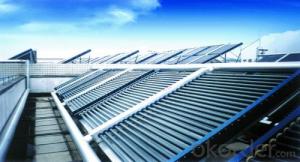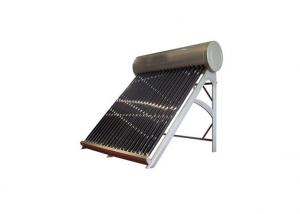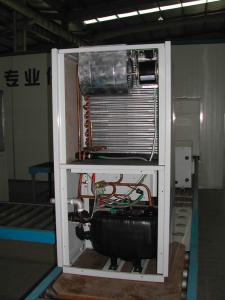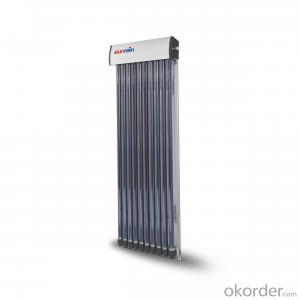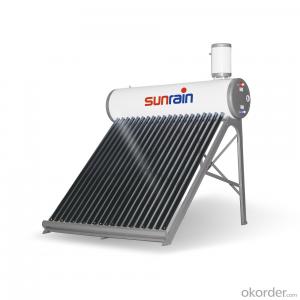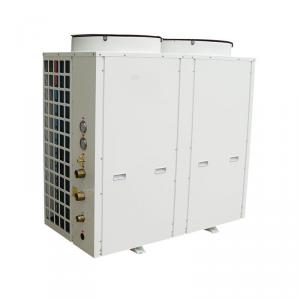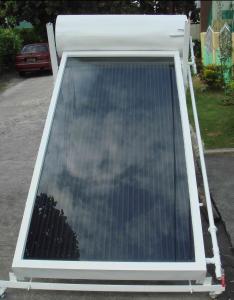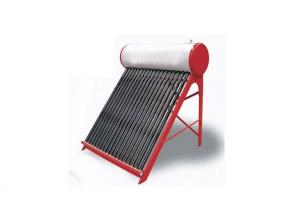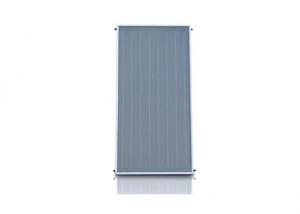Solar Heater with High Quality for Household Useing
- Loading Port:
- China main port
- Payment Terms:
- TT OR LC
- Min Order Qty:
- 10 set
- Supply Capability:
- 10000 set/month
OKorder Service Pledge
OKorder Financial Service
You Might Also Like
Solar water heaters features
1. The upright tank can make the water temperature to a high level. It can hot the water instantly
2. The tank inside the building, the hot water loses less energy than the normal one
3. The solar collector and the tank of solar water heater is separated, that makes the system combine with the building perfectly, which will reduce the sightseeing for the building and environment around
4. Back up with electric heater so that in the day without sunshine hot water can also be used
5. Can be combined with gas or electric heater
6. Max. Pressure: 12bar; Operating Pressure: 6 bar
7. It can be used for other function, such as warming
Solar water heaters working principle
1. The solar collector absorbs solar energy and transmits it to the solar water heater tank through circulation
2. When the temperature of the collector reaches the set value, the controller starts the circulation pump automatically
3. The circulation pump makes heat-conducting liquid circulate automatically
4. The heat-conducting liquid transfers heat to water by lower heat exchanger in the water tank.
5. When the temperature difference between solar collector and heat pipe solar water heaters tank doesn't reach the set value, the circulation pump will be shut automatically
6. In case the temperature of the water tank does not reach Tmax, Electric Heating Element will start to work automatically
Solar water heaters working station component:
1. Operating screen
2. Manometer
3. Pump speed adjust switches
4. Temperature difference circulation pump
5. Flow rate indicator
6. Return circuit connector
7. Safety valve
8. Expansion vessel connector9. Return circuit connector
10. Wall mounting
11. Expansion vessel:8L
12. Pressure resistance: 10 bar pressure for expansion vessel
Solar water heaters specification:
Description | solar water heaters |
Material of out manifold | 0.55mm thickness color steel/ fluorine carbon steel |
Material of inner tank | Food grade 2.0 mm thickness SUS304 stainless steel |
Tank insulating layer | 40mm 45kg/m³ high-density polyurethane foamed |
Inlet and outlet hole | Male G1'' |
Max pressure | 0.6 Mpa |
Solar collector tube | 3.3 Borosilicate glass with N/Al coating |
Thickness of glass tube | 1.6mm |
Vacuum tube tightness | P≤0.005 Pa |
Absorption | as=0.93-0.96 (AM1.5) |
Emission ratio | εh=0.04-0.06 (80C±5C) |
Idle sunning property parameters | Y=220~260m2.C/KW |
Average heat loss coefficient | ULT=0.6~0.7W/(m2.C) |
Bracket: | 2.0mm thickness aluminum alloy |
Tank weight | 75KGS |
Tank size | 560mm Dia x 1810mm Height |
Tank capacity | 300L |
Solar collector | 2pcs 58x1800x15tube solar collector |
Absorber area | 2.811 m² |
Working station | SP116 working station |
Heat exchanger length | Upper:12m, Underside:18m |
Solar water heaters details show:
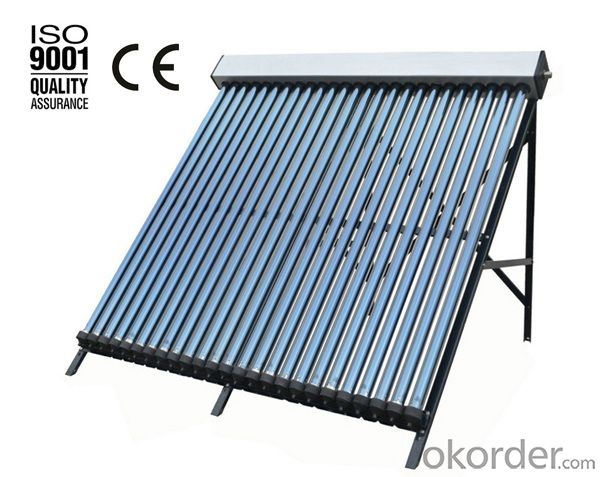
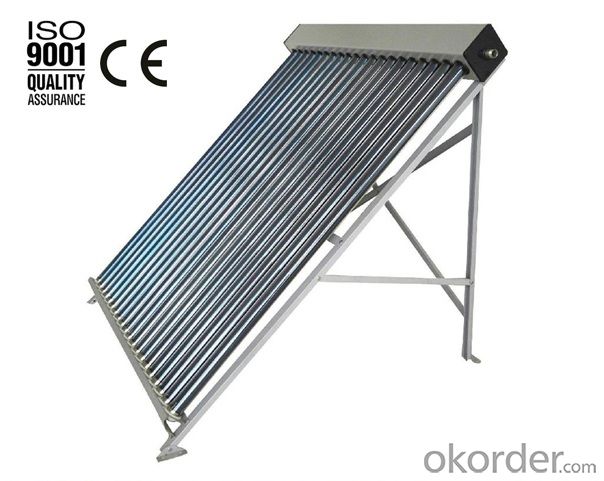
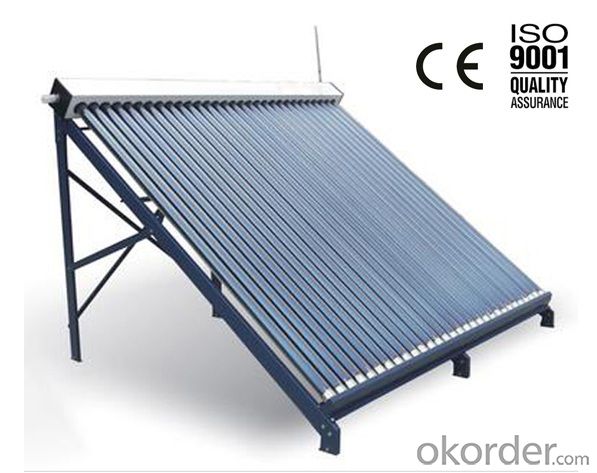
Benefits of this kind of solar water heaters:
1. Prolong the life of your existing water heater
2.Costs less than an electric, gas or oil water heater
3.No maintenance required
4.Lasts longer than a traditional hot water heater
5.Reduce your water heating costs
- Q:Can a solar water heater be used in areas with high wind speed?
- Yes, a solar water heater can be used in areas with high wind speed. However, it is important to consider the potential impact of strong winds on the system's performance and durability. High wind speeds can affect the overall efficiency of the solar water heater by causing heat losses through convection. In addition, strong winds can potentially damage or displace the solar panels, the collector, or the storage tank if they are not properly secured or designed to withstand such conditions. To mitigate the impact of high wind speeds, it is advisable to install the solar water heater in a location that is sheltered from direct exposure to strong winds, such as behind a building or in a protected area. Additionally, it is crucial to ensure that the system is securely anchored to prevent any movement or damage. Reinforcing the mounting structure and using appropriate mounting brackets and fasteners can further enhance the system's resilience against high winds. Moreover, selecting a solar water heater model that is specifically designed for high wind areas is recommended. These models often include additional features such as wind deflectors or streamlined designs that minimize the impact of wind on the system's performance. Overall, while it is possible to use a solar water heater in areas with high wind speed, careful consideration must be given to the system's installation, design, and maintenance to ensure its optimal performance and longevity in such conditions.
- Q:How much space is required to install a solar water heater?
- The space required to install a solar water heater depends on various factors such as the type and size of the system, the number of collectors, and the available sunlight. However, on average, a solar water heater typically requires around 10 to 15 square feet of roof space per collector. It's recommended to consult with a professional installer to determine the specific space requirements for your desired solar water heater system.
- Q:What is the required maintenance for a solar water heater?
- The required maintenance for a solar water heater typically includes checking the system's components, such as the collector, pipes, and valves, for any signs of damage or leaks. It is also important to clean the collector regularly to remove any debris or dirt that may reduce its efficiency. Additionally, the fluid in the system may need to be checked and topped up if necessary. Overall, regular inspection and cleaning, as well as professional servicing every few years, are recommended for optimal performance and longevity of a solar water heater.
- Q:Can a solar water heater be used in areas with limited access to wastewater treatment facilities?
- Yes, a solar water heater can be used in areas with limited access to wastewater treatment facilities. Unlike traditional water heaters, solar water heaters do not produce any wastewater, as they simply use the sun's energy to heat water. Therefore, they can be a sustainable and suitable option for areas where wastewater treatment facilities are not readily available.
- Q:How much space is needed for installing a solar water heater?
- The amount of space needed for installing a solar water heater can vary depending on several factors such as the size and type of the system, available roof space or ground area, as well as local building codes and regulations. Generally, a solar water heater requires sufficient unobstructed space on a roof or in an open area to accommodate the solar collectors or panels, along with the storage tank and other necessary components. It is recommended to consult with a professional installer to assess your specific requirements and determine the appropriate space needed for a solar water heater installation.
- Q:Can a solar water heater be used in areas with limited access to climate data?
- Yes, a solar water heater can be used in areas with limited access to climate data. Solar water heaters primarily rely on sunlight to heat water, and while climate data can provide helpful information for optimizing their efficiency, it is not an absolute requirement for their operation. As long as there is sufficient sunlight in the area, a solar water heater can still be utilized effectively without extensive climate data.
- Q:Can a solar water heater be used in areas with high levels of salinity in water?
- Yes, a solar water heater can be used in areas with high levels of salinity in water. However, it is important to consider the impact of the salinity on the system's performance and longevity. High salinity levels can cause corrosion and scaling in the system's components, such as the solar collectors and pipes. This can reduce the efficiency of the system and potentially lead to damage or breakdown. To mitigate these issues, it is recommended to use materials that are resistant to corrosion and scaling, such as stainless steel or copper. Regular maintenance, including flushing the system to remove salt deposits, is also important to ensure optimal performance. Additionally, installing a pre-treatment system, such as a water softener or desalination unit, can help reduce the salinity levels in the water before it enters the solar water heater. Overall, while a solar water heater can be used in areas with high salinity, it is essential to take necessary precautions to protect the system and ensure its longevity.
- Q:How does the type of insulation material impact the performance of a solar water heater?
- The type of insulation material used in a solar water heater can greatly impact its performance. Insulation helps to minimize heat loss from the system, allowing the water to stay hot for longer periods of time. Materials with high insulation properties, such as foam or fiberglass, can effectively retain heat and improve the overall efficiency of the solar water heater. On the other hand, using poor insulation material or insufficient insulation can result in significant heat loss, reducing the effectiveness of the system and requiring more energy to maintain the desired water temperature.
- Q:Can a solar water heater be used in any climate?
- Yes, a solar water heater can be used in any climate. While it may be more efficient in regions with abundant sunshine, it can still function and provide hot water even in colder or cloudier climates. The efficiency may vary, but overall, solar water heaters are adaptable and can be utilized in various climates.
- Q:How does the color of the solar water heater affect its performance?
- The color of a solar water heater can affect its performance by influencing the absorption and reflection of sunlight. Darker colors tend to absorb more sunlight, which increases the efficiency and heat transfer capabilities of the system. In contrast, lighter colors reflect more sunlight, reducing the overall performance of the solar water heater.
1. Manufacturer Overview |
|
|---|---|
| Location | |
| Year Established | |
| Annual Output Value | |
| Main Markets | |
| Company Certifications | |
2. Manufacturer Certificates |
|
|---|---|
| a) Certification Name | |
| Range | |
| Reference | |
| Validity Period | |
3. Manufacturer Capability |
|
|---|---|
| a)Trade Capacity | |
| Nearest Port | |
| Export Percentage | |
| No.of Employees in Trade Department | |
| Language Spoken: | |
| b)Factory Information | |
| Factory Size: | |
| No. of Production Lines | |
| Contract Manufacturing | |
| Product Price Range | |
Send your message to us
Solar Heater with High Quality for Household Useing
- Loading Port:
- China main port
- Payment Terms:
- TT OR LC
- Min Order Qty:
- 10 set
- Supply Capability:
- 10000 set/month
OKorder Service Pledge
OKorder Financial Service
Similar products
New products
Hot products
Related keywords
